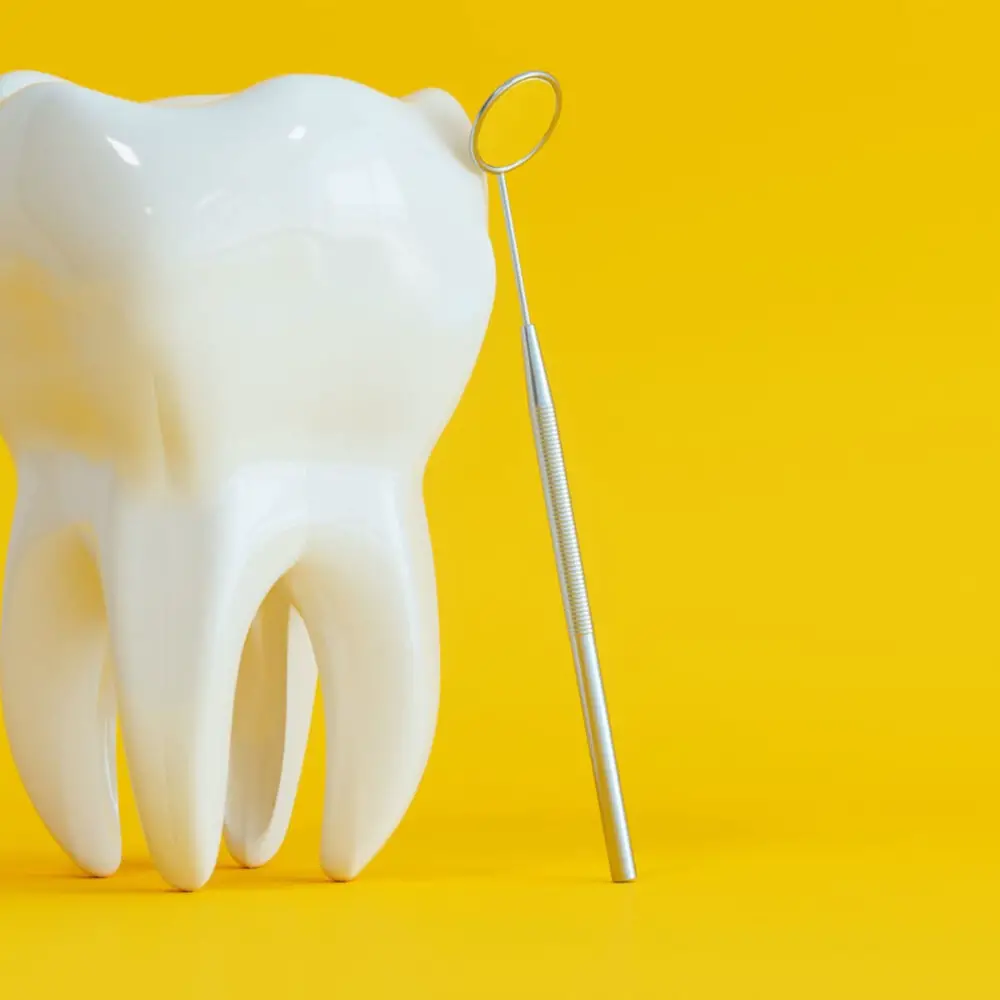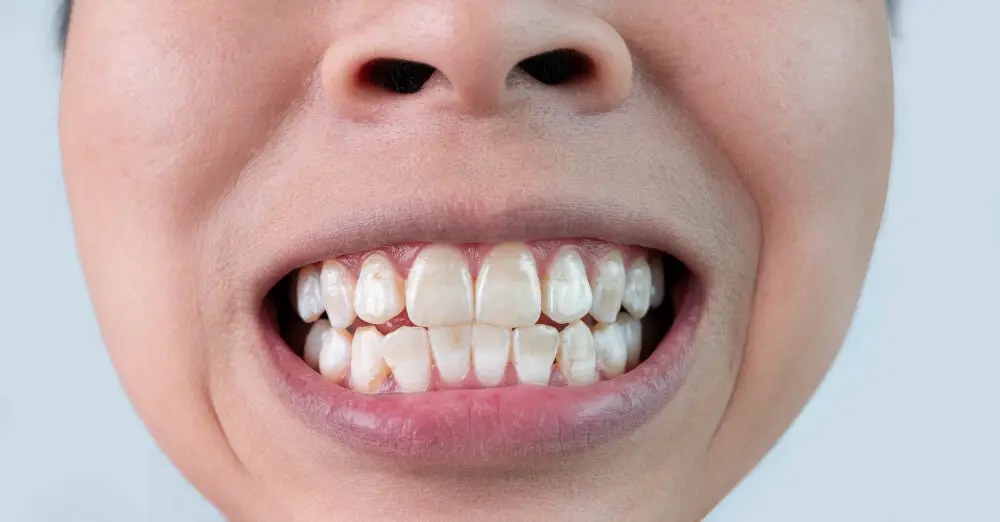Decoding Guinea Pig Behavior: Understanding Teeth Chattering in Your Pet

Guinea pigs are one of the most popular pets in the world, beloved for their adorable looks and affectionate nature. However, as with any animal, they have their own unique set of behaviors that can be difficult to understand. One such behavior is teeth chattering, which can be alarming for pet owners who are not sure what it means. In this article, we will explore the reasons behind guinea pig teeth chattering and what you can do to help your pet. Teeth chattering in guinea pigs can be a sign of a variety of things, from happiness to fear. Understanding what your pet is trying to communicate can help you provide the best care possible. Additionally, knowing how to interpret your guinea pig’s behavior can help you build a stronger bond with your pet. So, whether you are a seasoned guinea pig owner or a new one, it is important to learn about this behavior and its various meanings. Let’s dive in and explore the world of guinea pig teeth chattering!
Guinea pigs are social animals that communicate through a diverse range of behaviors, sounds, and body language. They are active during the day and sleep in short intervals throughout the day and night. Guinea pigs are affectionate and often show their love through gentle nibbling, purring, and snuggling. They are also known for their vocalizations, including squeaks, whistles, and purrs. Guinea pigs also use body language to communicate, including stomping their feet when they are angry or scared and wagging their tails when they are happy. Teeth chattering is a common behavior in guinea pigs that can indicate a range of emotions, from excitement to fear. Understanding guinea pig behavior can help pet owners provide their furry friends with the best care possible.
Guinea pigs are adorable and fascinating pets, but their behavior can sometimes be difficult to interpret. One particularly intriguing behavior is teeth chattering. While it may seem like a harmless quirk, understanding why your guinea pig is chattering its teeth can be crucial to its health and well-being. Teeth chattering is often a sign of fear or anxiety, but it can also indicate pain or illness. By paying attention to your pet’s body language and other behaviors, you can better understand the reasons behind its teeth chattering and take appropriate action to ensure its comfort and happiness. In short, being able to decode your guinea pig’s behavior, including teeth chattering, can help you provide the best possible care for your furry friend.
What is teeth chattering?

Teeth chattering is a common behavior exhibited by guinea pigs, and it’s important for pet owners to understand what it means. The sound is produced by the rapid grinding of their incisors and is often accompanied by other body language, such as raised fur and a hunched posture. While teeth chattering can be a sign of aggression or fear, it can also be a sign of excitement or anticipation. It’s important to pay attention to the context in which the behavior occurs to determine the underlying cause. For example, if your guinea pig is chattering its teeth while you’re preparing its food, it may be a sign of excitement and anticipation, whereas teeth chattering during interaction with another guinea pig could be a sign of aggression or fear. If you notice your guinea pig chattering its teeth, it’s important to approach the situation carefully. If the behavior is accompanied by other signs of aggression, such as lunging or biting, it’s best to give your pet some space and try to identify the underlying cause. However, if teeth chattering is a sign of excitement, you can use it to your advantage by providing your pet with toys or treats that stimulate their interest. Overall, teeth chattering is a complex behavior that can have multiple meanings, and it’s important for pet owners to be aware of its potential causes and context to ensure the health and happiness of their pets.
Teeth chattering is a common behavior exhibited by guinea pigs, which involves the rapid movement of their front teeth. It is a sign of fear, anxiety, or discomfort and can be accompanied by other behaviors like hunching, hiding, or freezing. Guinea pigs may chatter their teeth when they are introduced to a new environment, encounter a predator, or feel threatened by other guinea pigs. Teeth chattering can also be a sign of pain or discomfort, such as dental problems or illness. It’s important to pay attention to your guinea pig’s body language and vocalizations to understand their needs and provide them with a comfortable and safe environment.
Guinea pigs are cute and cuddly creatures, but they have their own ways of communicating with their owners. One of the common behaviors that guinea pigs display is teeth chattering. Teeth chattering is a sound that guinea pigs make when they are feeling excited, anxious, or frightened. It is a high-pitched, rapid chatter that can be heard from a distance. Guinea pigs may also display other signs of teeth chattering, such as shaking, hunching up, and making themselves appear smaller. Teeth chattering can be triggered by various factors, such as the presence of a new person or animal, a loud noise, or a sudden change in their environment. Observing your guinea pig’s behavior and understanding the context in which teeth chattering occurs can help you better understand your pet’s needs and emotions.
Guinea pigs are cute and cuddly pets, but they can exhibit some unusual behaviors, such as teeth chattering. There are several possible reasons why your guinea pig is chattering its teeth, including feeling cold, being scared, or showing aggression. Teeth chattering may also be a sign of pain or discomfort, so it is important to observe your guinea pig closely and determine the context of the behavior. If your guinea pig is chattering its teeth frequently or in combination with other symptoms, it is best to consult with a veterinarian to ensure your pet’s health and well-being.
Body Language and Vocalizations

Body language and vocalizations are the key components in decoding guinea pig behavior. Guinea pigs, also known as cavies, communicate through various body postures and sounds, which can give insight into their mood and feelings. Observing the body language of your pet guinea pig can help you understand their behavior and improve your bonding experience with them. Guinea pigs use a range of body language to communicate, such as arching their back, raising their head, and bristling their fur. When they are feeling threatened or scared, they may puff up their fur to appear bigger or huddle together to seek safety. On the other hand, when they feel relaxed and comfortable, they may stretch out and lie down. Paying attention to their body language can help you determine if your cavy is feeling happy, scared, or stressed. Additionally, guinea pigs can make a variety of vocalizations, including chirping, purring, and teeth chattering. Understanding these sounds can give you a better understanding of your pet’s needs and emotions. For example, teeth chattering can indicate fear or aggression, while purring is a sign of contentment. By learning to read your guinea pig’s body language and vocalizations, you can build a stronger bond with your furry friend and provide them with the care they need.
Guinea pigs are social animals and they use a variety of ways to communicate with each other. Their primary mode of communication is through vocalizations, including squeaks, chirps, and purrs. They also use body language, such as arching their backs, raising their head, and puffing up their fur, to signal their moods and intentions. Additionally, guinea pigs communicate through scent marking, by rubbing their chin and cheeks on objects in their environment. Teeth chattering is another way guinea pigs communicate, and it can indicate a range of emotions, including fear, anxiety, or excitement. By understanding the various ways that guinea pigs communicate, pet owners can better interpret their pet’s behavior and build a stronger bond with their furry friend.
Guinea pigs are social animals that use a variety of communication methods to express themselves. Teeth chattering is one such method that they use to convey their emotions. This behavior is usually associated with fear, anxiety, or aggression, and it can be accompanied by other signs such as raised fur, tense body posture, and a lowered head. When a guinea pig feels threatened or uncomfortable, it may start chattering its teeth as a warning to others or as a way to intimidate its perceived enemy. Understanding this behavior is essential for guinea pig owners, as it can help them identify potential stressors and provide a safe and comfortable environment for their pets.
In addition to teeth chattering, there are other body language and vocalizations that you can observe to understand your guinea pig’s behavior. When they are happy, they may make a soft purring sound, while a loud and high-pitched squeal is a sign of distress or fear. If they are feeling threatened, you may notice their fur standing up or their body becoming tense. On the other hand, if they are relaxed and comfortable, they may lay down on their side or back with their legs stretched out. Paying attention to these cues and vocalizations can help you better understand your guinea pig’s emotions and needs, ultimately strengthening the bond between you and your furry friend.
Possible Triggers for Teeth Chattering

Teeth chattering is a common behavior among guinea pigs that can signify various things. One of the most common triggers for teeth chattering is fear or anxiety. Guinea pigs may start chattering their teeth when they feel threatened, scared, or uncomfortable. This behavior can happen in response to loud noises, sudden movements, or unfamiliar people or animals. If you notice your guinea pig chattering their teeth, it is essential to identify the cause of their fear or anxiety and remove it from their environment. Providing a safe and comfortable space for your pet can help reduce their stress levels and prevent teeth chattering. Another possible trigger for teeth chattering in guinea pigs is excitement or anticipation. Guinea pigs may start chattering their teeth when they are excited about food, treats, or playtime. This behavior can also occur when they are anticipating social interaction with their owners or other guinea pigs. Teeth chattering in this context is usually accompanied by other signs of excitement, such as running around or jumping up and down. As a guinea pig owner, it is essential to understand your pet’s body language and behavior to provide them with the appropriate care and attention they need. By observing your guinea pig’s teeth chattering behavior, you can better understand their emotions and respond accordingly.
Stress and anxiety can have a significant impact on the behavior of guinea pigs. Teeth chattering, along with other signs such as hiding or freezing, can be a clear indication of stress and anxiety in these small animals. Factors such as changes in environment, loud noises, or unfamiliar people or animals can trigger such reactions. It is important for guinea pig owners to provide a calm and secure environment for their pets to prevent such stressors. Additionally, spending time with and providing mental and physical stimulation can help reduce stress and promote overall well-being in guinea pigs.
While understanding the behavior of your guinea pig can be challenging, it is important to pay attention to any unusual actions or sounds. One such behavior that can indicate possible health issues is teeth chattering. Guinea pigs may chatter their teeth when they are in pain, anxious, or fearful. It can also be a sign of dental problems, such as overgrown teeth or malocclusion, which can cause discomfort and difficulty eating. Regular check-ups with a veterinarian and providing a healthy diet with plenty of hay can help prevent dental issues and ensure the overall health and well-being of your furry friend.
Territorial behavior is a common trait exhibited by many animals, including guinea pigs. This behavior is characterized by the need to defend and mark one’s territory as their own. In the case of guinea pigs, territorial behavior is often displayed through teeth chattering, a vocalization that can be interpreted as a warning to other guinea pigs to stay away. It is important for pet owners to understand this behavior in order to provide a safe and comfortable environment for their pets. By recognizing territorial behavior and providing adequate space and resources for each guinea pig, pet owners can help prevent conflicts and promote a happy and healthy living environment for their furry friends.
Aggression towards other guinea pigs or pets is not uncommon in these furry little creatures. While they may be docile and friendly towards their human owners, guinea pigs can become territorial and aggressive towards their own kind or other pets in the household. This behavior can manifest in a variety of ways, including teeth chattering, biting, chasing, and even hair pulling. It is important for guinea pig owners to understand the root causes of this behavior, which can include stress, fear, and hormonal changes. Proper socialization and providing adequate living space can go a long way in preventing aggression towards other guinea pigs or pets in the household.
How to Respond to Teeth Chattering

Teeth chattering is a common behavior among guinea pigs, and it can signify a range of emotions. Responding appropriately to teeth chattering can help you understand your pet’s behavior and strengthen your bond with them. The first step in responding to teeth chattering is to observe your guinea pig’s body language. If they are hunched up or backing away from you, it may be a sign of fear or discomfort. In this case, it is best to give them some space and approach them slowly and gently. On the other hand, if your guinea pig is chattering their teeth while running around or exploring, it may be a sign of excitement or even happiness. In this case, you can try interacting with them by offering treats or toys. However, it is important to remember that each guinea pig is unique, and their teeth chattering behavior may have different meanings depending on their personality and past experiences. By taking the time to observe and understand your pet’s behavior, you can respond in a way that makes them feel safe and loved.
When your guinea pig is stressed or anxious, it’s important to provide a calm environment and use soothing techniques to help them relax. One effective technique is to offer gentle, reassuring words and petting. Softly stroking your pig’s fur while speaking in a calm, reassuring tone can help to ease their anxiety. Additionally, providing a quiet, comfortable space for your guinea pig to retreat to can be helpful. You can also use a calming pheromone spray designed specifically for guinea pigs to help reduce stress. Finally, offering your guinea pig a healthy, balanced diet and plenty of fresh water can help to keep them healthy, which can also reduce stress levels. By providing a calm, nurturing environment, you can help your guinea pig feel safe and comfortable, even during stressful situations.
If your guinea pig is exhibiting teeth chattering behavior, it is important to address any potential health issues with your veterinarian to ensure your pet’s well-being. Schedule a visit with your vet and provide them with detailed information about your guinea pig’s behavior, including any changes in appetite or activity levels. Your vet may perform a physical exam and diagnostic tests to identify any possible underlying health conditions. Treatment options may include medication, changes in diet or environment, or other interventions. By working with your veterinarian, you can help keep your guinea pig healthy and happy.
Territorial or aggressive behavior in guinea pigs can be concerning for pet owners. However, there are several tips that can help in handling such behavior. Firstly, it is important to understand that guinea pigs are social animals and require ample space for themselves. Therefore, providing a larger living space can reduce territorial aggression. Secondly, it is important to handle guinea pigs gently and with care as rough handling can lead to aggressive behavior. Thirdly, providing hiding spots and toys in their living space can help in reducing their territorial behavior. Finally, if the aggressive behavior persists, consulting a veterinarian or an animal behaviorist is recommended to rule out any underlying medical conditions or behavioral issues.
Understanding teeth chattering in Guinea Pigs is crucial for their overall well-being. Being social animals, Guinea Pigs use various forms of communication to interact with their owners and other pets. Teeth chattering is one of the ways in which they express their emotions and feelings, such as anxiety, aggression, or excitement. If owners are unaware of this behavior, they may misinterpret it as a sign of illness or discomfort. Hence, recognizing teeth chattering in Guinea Pigs can help owners respond appropriately to their pets’ emotional needs, ensuring their physical and mental health. Additionally, understanding teeth chattering can help owners provide a comfortable and safe environment for their pets, leading to a happy and healthy relationship between humans and Guinea Pigs.
Caring for your pet is not just about providing them with food and shelter. It also involves understanding their behavior and catering to their needs accordingly. Guinea pigs are social animals that require proper attention and care. Understanding their behavior is crucial in ensuring their well-being. One of the behaviors that guinea pig owners need to be aware of is teeth chattering. This behavior can indicate various things such as fear, aggression, or happiness. Being observant of your pet’s behavior can help you determine their needs and address any issues they may have. Regular check-ups with a veterinarian can also help ensure that your pet is healthy and happy. Taking care of your pet requires effort and attention, but the rewards of having a happy and healthy companion are well worth it.
Conclusion

In conclusion, understanding guinea pig behavior is crucial for their well-being and happiness as pets. Teeth chattering is a common behavior that can indicate a range of emotions, from fear and anxiety to excitement and anticipation. By observing your guinea pig’s body language and environment, you can decipher the context of their teeth chattering and respond accordingly. Providing your guinea pig with a comfortable and stimulating living space and regular social interaction can help reduce stress and promote positive behavior. Overall, decoding guinea pig behavior requires patience, attentiveness, and a willingness to learn about your pet’s unique personality and needs.






